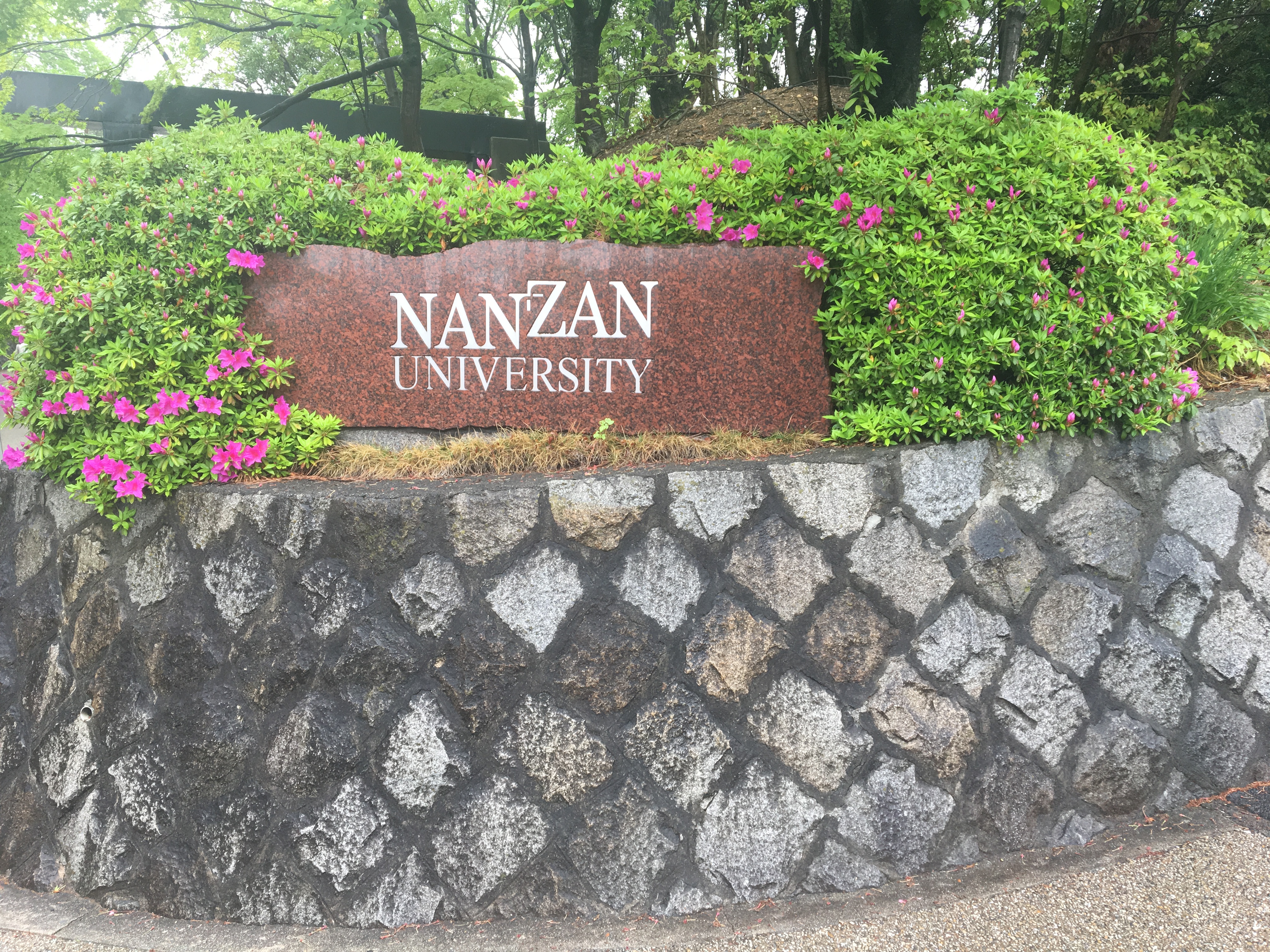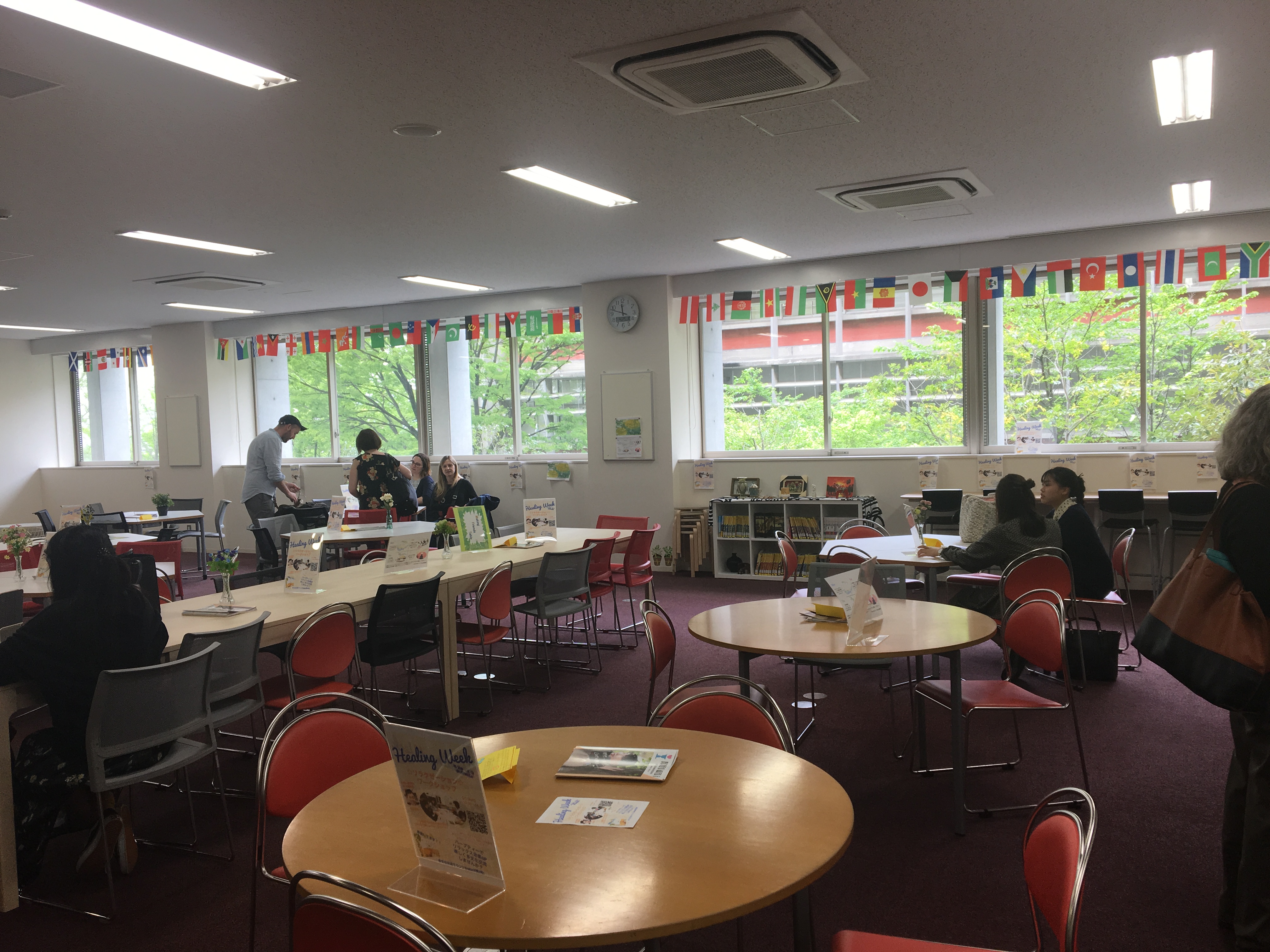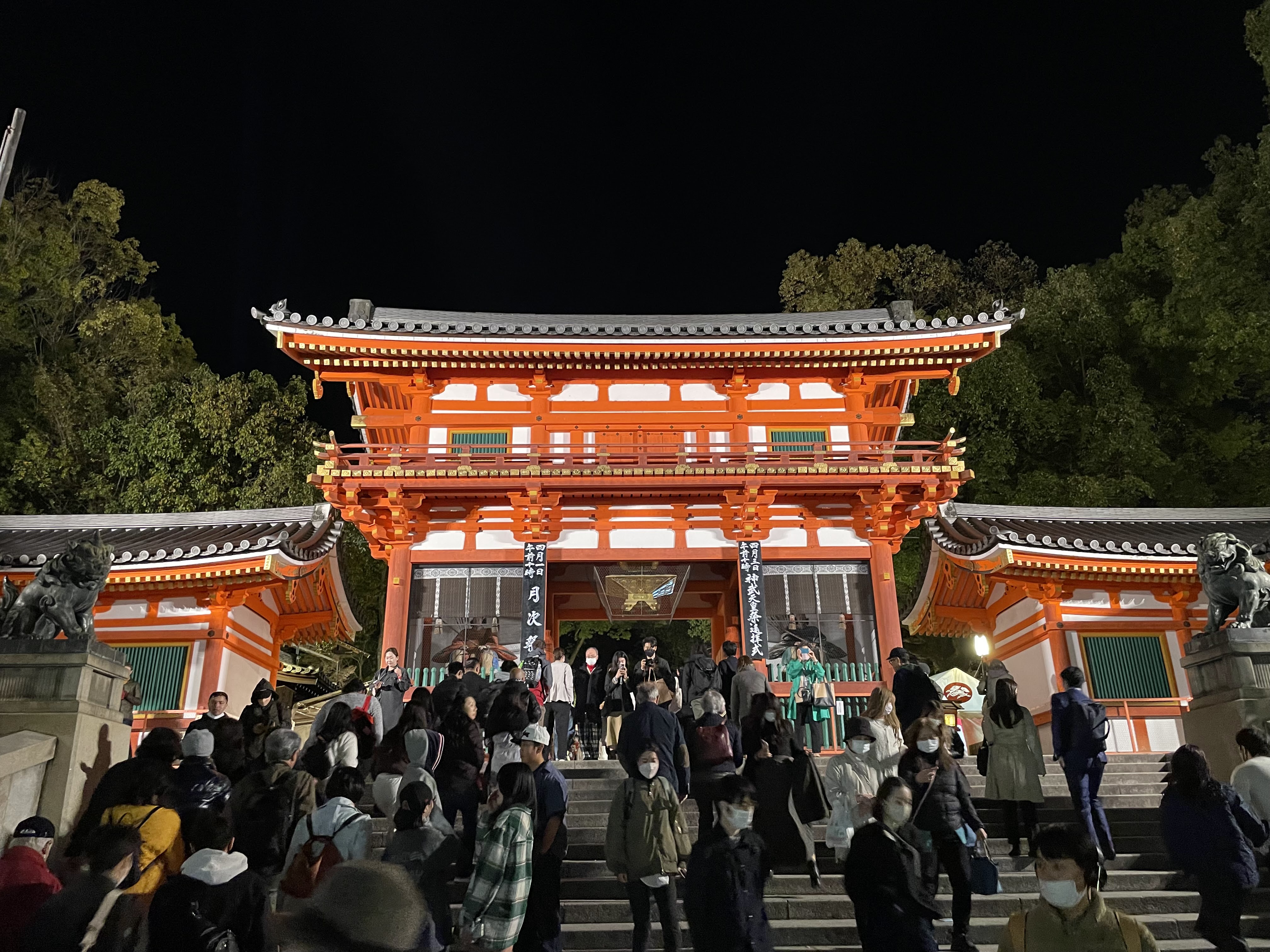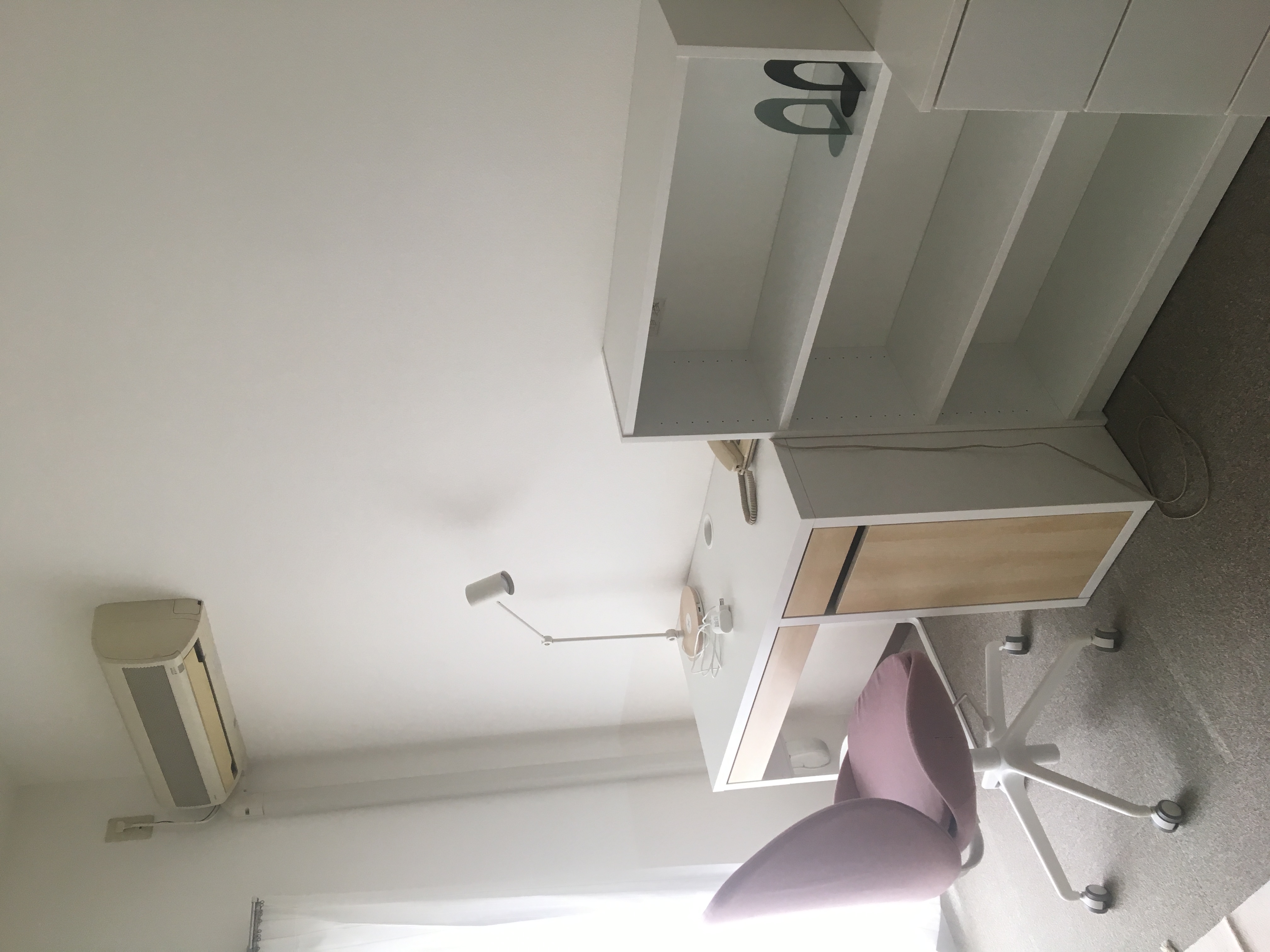Return to the search form Return to your search results
IES Nagoya Summer Language & Culture
Fast Facts
Sessions Offered:
Summer
Location:
Nagoya, Japan
Credit:
Transfer
Eligibility:
• Minimum 3.0 cumulative GPA
• Good academic and disciplinary standing
• 1 semester of college-level Japanese language
• Sophomore, junior, or senior standing at the time the program begins
• 18 years of age
• Check the 'Eligibility' section under the Application tab for more details.
Application Due:
• Summer: January 29
Program Cost:
Check the 'Costs' section under the Application tab.

Experience day-to-day life in Japan’s fourth-largest city, Nagoya. This 8-week summer program offers intensive Japanese language courses at the Center for Japanese Studies (CJS) at Nanzan University. You’ll be able to immerse yourself in Japanese life and culture while improving your language skills.
Academic Program

University of Iowa students earn transfer credit for this program.
Courses are taught at the Center for Japanese Studies (CJS) at Nanzan University. All students are required to enroll in a required 4 semester hour Japanese language course. In addition to the language course, students have the option to take additional courses for up to 8 semester hours during their summer session abroad. Most elective courses are 2 semester hours each. Please visit IES’s website to review the additional course options.
Applying credit toward a UI degree
Unless UI Study Abroad has an approval on file for the courses you take abroad to be applied toward a specific major, minor, or certificate, you will receive general elective credit for your course. The course approval process will be discussed when you meet with your study abroad advisor.
Note: Elective courses at Nanzan University are 2 s.h. each and therefore cannot be used to satisfy General Education requirements within the UI College of Liberal Arts and Sciences or Tippie College of Business.
Cultural Activities

This academic program is supplemented with cultural activities in and near Nagoya so students can further their cultural knowledge of Japan. IES typically takes students on a 2-day excursion to Kyoto. During this excursion, you can expect to visit temples, shrines, and historical neighborhoods.
Program Dates
This program typically runs from end of May to early August. For exact dates, please check the IES Nagoya website.
For more information
Steps to Studying Abroad
- Before initiating an application with IES, students must complete a Discover Study Abroad session at the University of Iowa.
- After completing the Discover Abroad session, students will receive an email with their study abroad advisor assignment.
- Once assigned, students must meet with their study abroad advisor to receive program application instructions.
Study Abroad
1111 University Capitol Centre
Iowa City, IA 52242
Phone: 319-335-0353
Email: study-abroad@uiowa.edu
Nanzan University

Nanzan University is a private catholic university that was founded in 1946. Nanzan University has approximately 10,000 students, including over 300 international students. The Center for Japanese Studies (CJS) at Nanzan University was established in 1974 to provide intensive instruction and training in the Japanese language. CJS also provides many extracurricular activities.
Nagoya

The city of Nagoya, completely rebuilt after the war, is noted for its comprehensive city planning projects. It is Japan's fourth largest city, home to industrial powerhouse Toyota, and capital of Aichi prefecture, located in the central Honshu region. Excellent air, road, and rail services provide convenient access to locations throughout the country. Nagoya's history dates back to the 17th century, when Tokugawa Ieyasu, the general credited with unifying Japan, built a castle in the city. Nagoya Castle has since been reconstructed and is a common attraction for visitors.
Japan

Japan is an island country in East Asia, located in the northwest Pacific Ocean. Japan is the world’s tenth largest country by population, with 127.3 million people. Tokyo, Japan’s capital city, is the world’s largest metropolitan area, with a population of 32.5 million people. Japan is the world’s third largest economy. Japanese companies in the top 100 of the Fortune ranking include Toyota Motor, Honda Motor, Nissan Motor, Panasonic, Sony, and Toshiba.
US Department of State Country Information
The US Department of State provides safety and security information for every country of the world to help you assess for yourself the risks of travel. Each country information page contains a Travel Advisory, Alerts, and other important details specific to that country that could affect you.
Pay close attention to the entry and exit requirements, local laws and customs, health conditions, and other details to help decide whether traveling to any given country is right for you. Non-US citizen travelers may also wish to seek guidance from the embassy of their country of citizenship. The UI International Travel Policy for Students addresses restrictions on student travel to high-risk locations and engagement in high-risk activities abroad.
Living Arrangements

Housing is included in the program fee. Students can select from the following housing options:
- Homestay:You will be placed with a local family during your time abroad. You may have a longer commute to the university than students who select dormitories. However, this a great option for improving language skills and for increased cultural immersion. Students will have a single room, and the host family provides breakfast and dinner.
- Residence hall:The student dorms house a mix of Japanese and international students. Students will have a single room and can expect to have shared bathroom facilities. There are no meals provided with this option. The residence halls have internet access, laundry, and a shared kitchen space. Bed linens are provided.
More details can be found on the housing section of the IES website.

Passport
If you do not have a passport, it is important that you apply for one as soon as possible to ensure you receive it before the program begins. US citizens can find more information about how to apply for a passport on the US Department of State’s website.
Important notice for students without a valid passport or whose passport will expire within the next 12 months:US citizens can find more information about how to renew a passport on the US Department of State’s website.
Students with a valid passport should check the expiration date. Passports must be valid for at least 6 months AFTER the anticipated return to the US from studying abroad. If your passport is not valid for at least 6 months after your anticipated date of return to the US, you must renew your passport before applying for the visa you will need to enter your host country.
Expedited processing service is available for US passports (although this still takes several weeks and is at an additional cost). UI Study Abroad encourages students to ask the passport agency at the time of application whether expedited service is recommended.
Non-US Citizens
Students who are not US citizens should contact their consulate for more information if they need to get a new passport or renew their passport.
Travel Arrangements
Students will work with their program provider to make travel arrangements to their program site. The cost of travel is not included in the course fee. UI Study Abroad will not arrange a group flight to your study abroad destination.
Do not purchase plane tickets until you have received instructions on how to do so from your program provider.
Local Transportation
Within your host city and around Japan, students will utilize public transportation such as metros, buses, and trains. Bring comfortable shoes, you will be walking a lot in your local city!
Eligibility
This program is open to UI students who fulfill the following requirements:
- Minimum 3.0 cumulative GPA: Student must have at minimum a 3.0 cumulative GPA to participate in this program.
- 1 semesters of college-level Japanese (or equivalent): Students must have completed 1 semester of college-level Japanese (or equivalent)
- Good academic and disciplinary standing: Students must be in good academic and disciplinary standing at the University of Iowa. Academic and disciplinary history will also be considered when determining whether a student is prepared to represent the University of Iowa as part of this program. Students who, even after being accepted into a program, are put on either academic and/or disciplinary probation for any period of time overlapping with the study abroad program dates are ineligible to study abroad. In these cases, students must forfeit their acceptance, will not be allowed to study abroad, and are wholly responsible for any and all financial expenses incurred.
Costs
The cost sheets outline the total estimated costs associated with participating in this program and can be used for financial aid purposes. They include fees charged on students’ U-Bill as well as out-of-pocket expenses. Actual out-of-pocket expenses will vary from individual to individual. Quoted estimates are conservatively high, yet realistic.
Costs for future sessions are usually similar to the current session, however students can expect a modest increase in overall costs each session. Final cost sheets for future sessions are typically available early in the semester before the session begins.
The following cost sheet applies to the Summer 2026 session.
 IES Nagoya Summer 2026 cost sheet
IES Nagoya Summer 2026 cost sheet
Calculating Fees
The cost sheets are based on the fees described below:
- University of Iowa Study Abroad Administrative Fees
- University of Iowa’s CISI health insurance
- The course fee/tuition, housing costs, plane tickets and transportation costs, personal expenses, visa and immigration fees, and other costs of attendance per the IES Nagoya summer program websites.
Cost sheets do not include the following optional costs:
Additional Optional Costs Paid to IES Abroad
- Single room housing upgrade
- Optional IES Field Trips
Optional fees vary by session, and will be available shortly before the upcoming session.
Personal Travel Costs
Costs for personal travel are not included in the cost estimates provided on the cost sheet. If you plan to travel outside of your host city or country during or after your study abroad program, you will need to budget for additional funds to cover the cost of your personal travel.
Scholarships & Financial Aid
For more information about receiving financial aid while studying abroad, please review the following:UI Financial Aid Information
You can find more information about options for funding your study abroad experience including scholarships on Undergraduate Scholarships for Study Abroad.
In addition, take a look at IES Abroad’s Scholarship website for information about scholarships offered directly through your program provider.
How to Apply
- Meet with the appropriate study abroad advisor to discuss your study abroad plans well ahead of the application deadline. Your application will not be approved until you've completed this step. You can set up an appointment by calling UI Study Abroad at 319-335-0353.
- Meet with your academic advisor to review your program and ensure that it is a good match for your academic and personal goals.
- If you and your academic advisor agree that the program is a good match for you, complete the UI Study Abroad application. Please note that the non-refundable $50 application fee will be charged to your U-Bill as part of this online application.
- Create an account in the IES Portal and complete the online application for your desired program.
- Complete all of the online sections of the application. Note: The IES online application takes 1-2 business days to activate. Submit your application 1-2 days before the IES application deadline to ensure it is received in time to be considered.
- Send an official University of Iowa transcript to enrollments@iesabroad.org. You can find information about requesting an official transcript here: Requesting a Transcript
- Upload any additional documents required for your IES application.
- Your Study Abroad advisor will complete the Home School Authorization once you have completed the UI application and the IES application.
- IES Abroad will contact you by email to inform you of your acceptance decision within several weeks.
Post-Acceptance
Confirmation
If you are accepted to your IES program, you will be asked to commit to participating in your program by submitting the University of Iowa Confirmation of Participation form and the IES Abroad Intent to Enroll document.
After you have formally confirmed your plans to participate, you will work with both UI Study Abroad and with IES Abroad. Follow instructions from both. Later in the semester, your UI Study Abroad advisor will contact you regarding orientation sessions, registration, and other required UI procedures and documentation.
Application Deadline
Note: This program has a limited number of slots and can sometimes reach capacity prior to the application deadline. Students are encouraged to plan ahead with study abroad advisor and to apply early.
Applications for the Summer are due on January 29.
Health & Safety Planning
In addition to submitting their Confirmation of Participation form, students should review the following:
Iowa Regents CISI Health Insurance Information
Students are also encouraged to complete the Health Preparation Guide for International Travel form with their medical practitioner. This document is intended to help you plan for your medical needs abroad. Please DO NOT turn this form in to UI Study Abroad.
Health Preparation Guide for International Travel form with their medical practitioner. This document is intended to help you plan for your medical needs abroad. Please DO NOT turn this form in to UI Study Abroad.
Visa
Any students who will need to apply for a Japanese visa will need to wait until receiving their official admission letter from IES before they can begin applying for a visa. IES and the UI Study Abroad staff can provide some assistance and advising on the visa application process, but ultimately the individual traveler (the student) is the person who is responsible for providing correct information on the visa application and securing the visa and all other required documentation prior to travel.
Non-U.S. passport holders should consult with IES regarding their visa requirements.
Orientation
In order to prepare for your time abroad, you are required by the University of Iowa to complete two orientations. These may be in addition to orientations provided by your on-site provider. See below for more information.
Online Education Abroad Pre-Departure Orientation
You are required to complete the International Programs ICON course "Education Abroad Pre-Departure Orientation" prior to departure. This orientation is mandatory for all students going abroad under the auspices of the University of Iowa. It covers many practical matters about living overseas, such as health and safety, communication, money, goals, and much more. You will be enrolled in this course by International Programs and an email will be sent to you once enrolled. If you have any questions, you can email safety-abroad@uiowa.edu
Program-Specific Orientation
This orientation will be facilitated by your study abroad advisor and will cover content specific to your program and host country. It could be conducted in a group setting or one-on-one depending on your type of planned activity abroad. Your study abroad advisor will send you more information about this mandatory in-person session.
